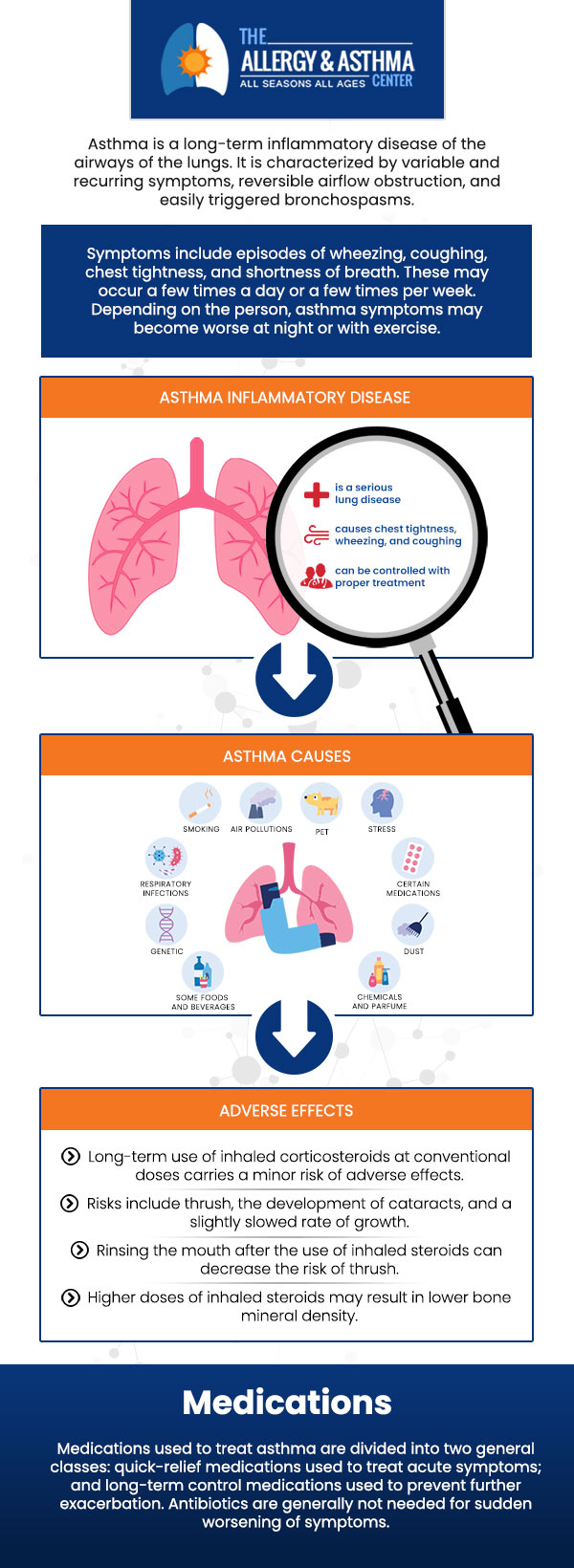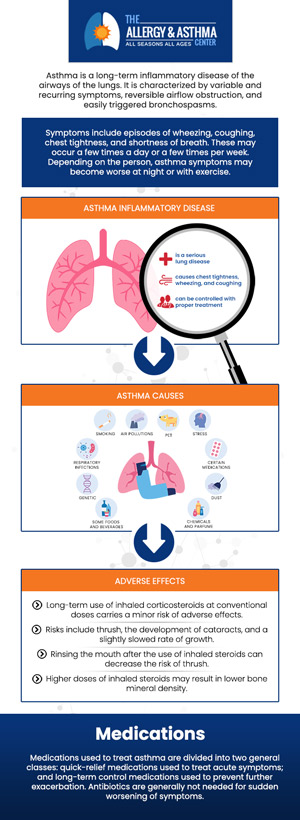Exercise and Sports Induced Asthma Specialist in Georgia
Exercise can sometimes aggravate asthma symptoms. This is referred to as exercise-induced bronchoconstriction. Exercise-induced asthma develops when the airways narrow as a result of physical activity. Learn about exercise and sports induced asthma from the asthma specialists near you. For more information, please contact us or book an appointment online. We serve patients from Lawrenceville GA, Atlanta GA, Conyers GA, Suwanee GA, Duluth GA, Grayson GA, Decatur GA, Brookhaven GA, Lithonia GA and Covington GA.




Table of Contents:
What is exercise induced asthma?
How is exercise induced asthma diagnosed?
How is EIA treated?
Asthma is a common condition that affects millions of people worldwide. Common symptoms of asthma include coughing, wheezing, chest tightness, and shortness of breath. For those whose symptoms are precipitated by exercise, they are often diagnosed with exercise induced asthma (EIA) or sports induced asthma. Exercise induced asthma is caused by the lungs’ response to cold, dry air. Physicians believe it is the quick change in temperature or moisture that irritates the muscles in the lining of the lungs, resulting in coughing and the sensation of chest tightening. At times, EIA may only present with the symptom of coughing. EIA, especially if untreated, can limit one’s ability to participate in sports or vigorous exercise.
In most cases, EIA can be diagnosed by history and most specifically by the timing of the symptoms. Symptoms of cough or wheezing typically occur after the first 5-10 minutes of activity and usually improve when the individual stops exercising. Sometimes the symptoms are only present when the exercising individual is exposed to very cold or dry air. Pulmonary function tests are commonly normal at baseline, and it is sometimes necessary for a physician to perform pulmonary function tests before and after exercise to help make the diagnosis. A trial of medications may be prescribed to ascertain whether they eliminate the symptoms of EIA.
Patients with EIA should always perform a slow warm up and cool down prior to exercise to help prevent bronchospasm. Physicians may prescribe a short acting beta agonist medication such as albuterol which should be used 15-30 minutes before exercise. This medication alone is quite effective in most individuals. Other medications such as Cromolyn (Intal), Nedocromil (Tilade) and occasionally Singulair (Montelukast) have been shown to be helpful in preventing symptoms. It should be noted that in patients with more persistent asthma, an important approach may be to treat the underlying inflammation caused by allergies.
With proper treatment, most patients with EIA should be able to participate in sports and healthy amounts of exercise. Swimming is often recommended for asthmatics since they are exposed to warm moist air. Other sports that asthmatics might tolerate include team sports that require short bursts of exercise such as baseball, football, and short track events. Leisurely biking or walking are also recommended.
Many asthmatics have participated in sports at the highest levels of competition, including professional football players Jerome Bettis and Emmett Smith. Professional basketball Dominque Wilkens and Juwan Howard have excelled in spite of their asthma. Asthmatic athletes from the United States who have won Olympic medals include Nancy Hogshead (swimming), Greg Louganis (diving) and Jackie Joyner-Kersee (track and field).
Speak with an allergy or asthma specialists near me today if you or your child have symptoms of exercise induced asthma. Chances are excellent that with proper care, patients with exercise induced asthma can reach their physical and exercise potential.

Additional Allergy & Asthma Services
▸ Allergy Shots
▸ Allergy Testing
▸ Asthma
▸ Bronchodilators
▸ Drug Allergy
▸ Food Allergy
▸ Insect Allergy
▸ Nasal/Sinus Allergies
▸ Pediatric Allergy
▸ Pediatric Asthma
▸ Skin Allergy
▸ Spring Allergies




